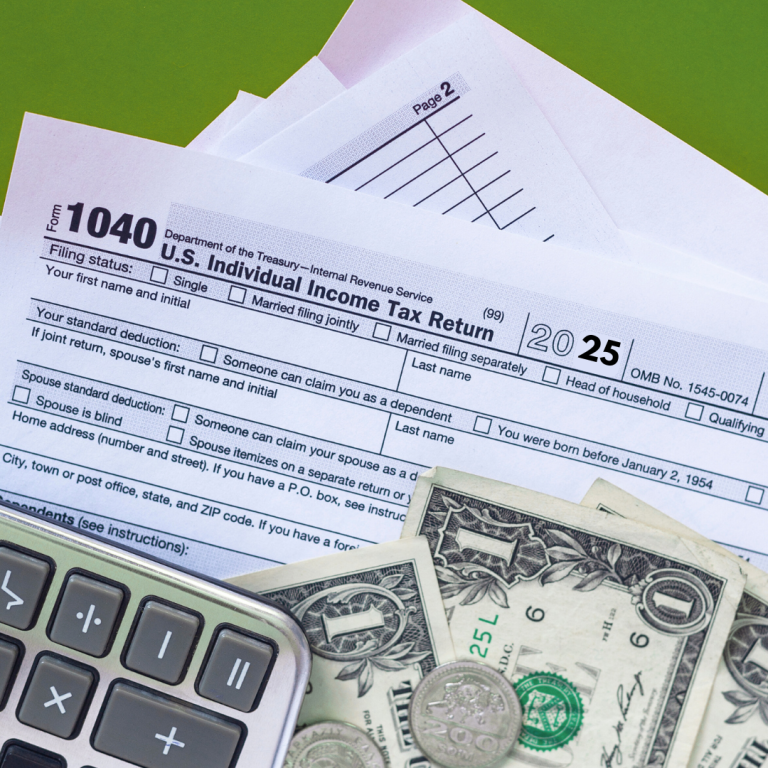Tax Changes for Individuals
Signed into law on July 4th, 2025, H.R.1, also known as the One Big Beautiful Bill Act (OBBBA) extends several major provisions from the 2017 Tax Cuts and Jobs Act and introduces a host of new tax measures. The following are some impactful changes for individuals.
Permanent Extension of 2017 TCJA Individual Tax Rates:
The lower individual income tax brackets established by the 2017 Tax Cuts and Jobs Act (TCJA) are now permanent, providing long-term certainty for tax planning.
Permanent Increase in the Standard Deduction:
Beginning in 2025, the standard deduction will receive a permanent boost. The deduction amounts will be $31,500 for joint filers, $23,625 for head of household filers, and $15,750 for single or other filers. These amounts will be indexed for inflation in future years.
Permanent Child Tax Credit:
The child tax credit has been made permanent with an increased credit value of $2,200 in 2026 and will be adjusted for inflation in future years.
Temporary Increase in the State and Local Tax (SALT) Deduction Cap (2025–2029):
For tax years 2025-2029, the state and local tax deduction cap will temporarily increase from $10,000 to $40,000. For taxpayers with an adjusted gross income (AGI) greater than $500,000, the deduction will phase out by 30% of excess income not to be reduced below the original $10,000 cap.
Increased Estate and Gift Tax Exemption:
Effective in 2026, the lifetime exemption amount for estates and gifts will increase to $15 million per individual ($30 million for married couples), indexed for inflation. This higher exemption has been made permanent, creating long-term planning opportunities.
Enhanced Qualified Small Business Stock (QSBS) Exclusion:
The bill significantly enhances the QSBS exclusion for stock acquired after July 4, 2025, introducing a tiered exclusion system based on holding period and increasing limitations. The exclusion cap has been increased from $10 to $15 million, and the gross asset value threshold has been increased from $50 to $75 million. Both figures will be adjusted for inflation annually beginning in 2027.
Qualified Business Income (QBI) Deduction:
The QBI deduction, initially set to expire in 2026, is now permanent and the rate remains 20%. The income phase-in threshold has been increased from $50,000 to $75,000 for single filers and from $100,000 to $150,000 for joint filers. Additionally, the bill adds a new minimum deduction of $400 (adjusted for inflation starting in 2026) for taxpayers with at least $1,000 in active QBI during the year.
Car Loan Interest Deduction:
Starting in 2025, individuals can deduct the interest they pay on a car loan if they buy a new vehicle for personal use. This new deduction—available through 2028—allows you to deduct up to $10,000 in interest per year, even if you do not itemize your deductions. To qualify, the loan must be for a new car, the car must be for personal use, and the loan must be secured by the car itself. The deduction begins to phase out if your income is over $100,000 (or $200,000 for joint filers). The auto’s gross vehicle weight must be under 14,000 pounds, and final assembly must have been completed in the U.S.
$6,000 Senior Deduction:
Effective for 2025 through 2028, individuals who are 65 or older can claim a new $6,000 tax deduction. This is on top of the standard deduction already available to seniors. If both spouses in a married couple are 65 or older, they can claim a total of $12,000. The deduction begins to phase out for those with income over $75,000 (or $150,000 for joint filers).
529 Account Expansions:
The list of eligible education expenses for 529 distributions has been expanded to include a broader range of K-12 expenses as well as costs associated with recognized postsecondary credential programs. The annual distribution limit for K-12 expenses has also been increased from $10,000 to $20,000.
Creation of “Trump Accounts:”
The act introduces “Trump Accounts,” a new type of savings vehicle for minors, which will receive a $1,000 government contribution for eligible children born between 2025 and 2028, and allow up to $5,000 in additional annual contributions.
Be on the lookout for more OBBBA articles coming soon.


